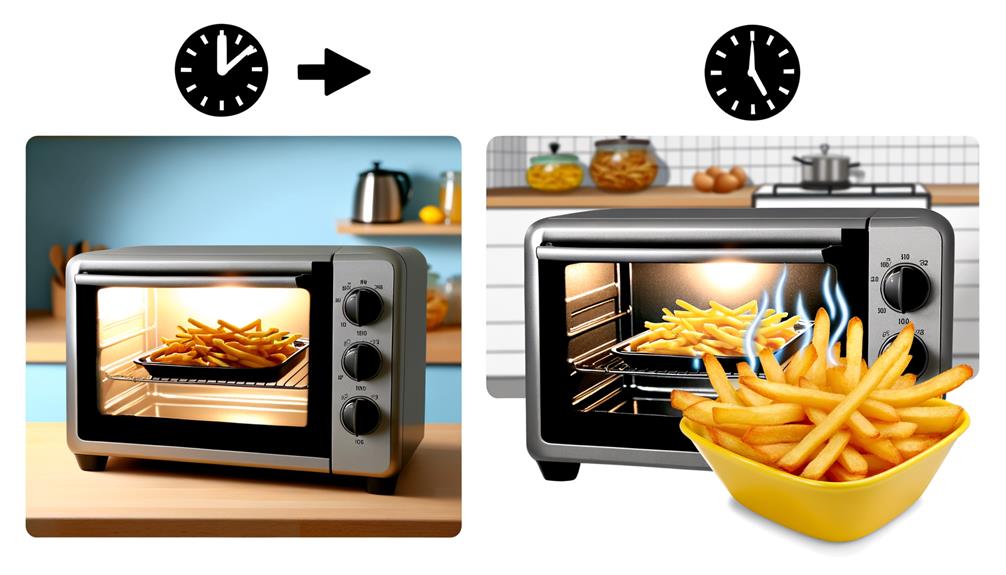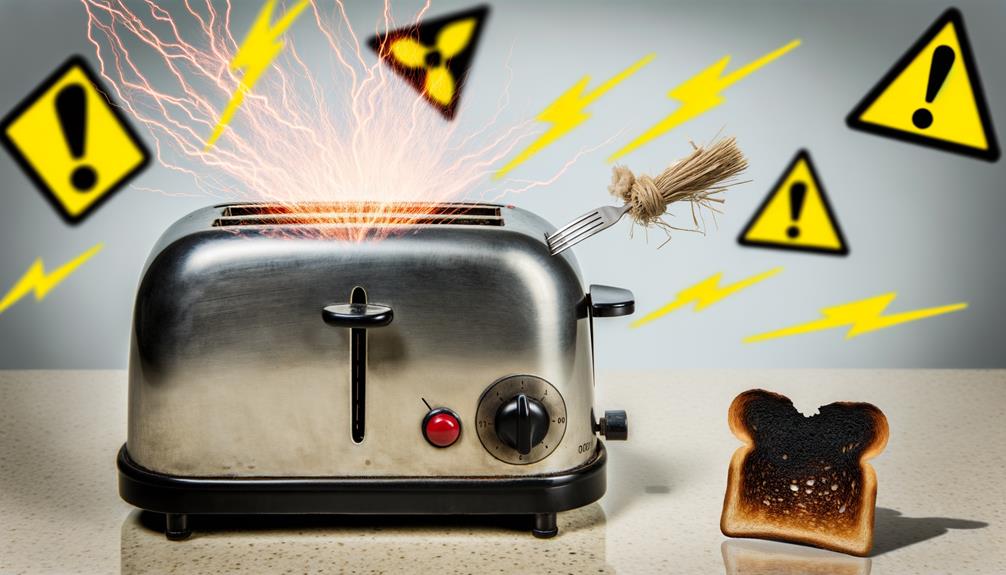Smart fridges have revolutionized our kitchen spaces with their advanced technology and connectivity, promising to bring our food storage and management to a new level. But how long does a smart fridge last? Let’s dive into the life expectancy of these innovative appliances, and learn about their durability, ways to extend their lifespan, and what to consider when you decide to replace your refrigerator.
Table of Contents
ToggleLifespan of Smart Fridges
According to consumer advocate reports, the average lifespan of a smart fridge can range from 10 to 15 years. While their lifespan is comparable to traditional refrigerators, the longevity of a smart fridge can significantly depend on its brand, maintenance, and usage. This information provides a baseline for what consumers can expect when they invest in a smart fridge.
Factors That Influence the Lifespan of a Smart Fridge
Several factors can influence the lifespan of a smart fridge. These include:
- Quality and Durability: High-quality fridges from reliable brands usually use superior materials and craftsmanship in their construction. This gives them higher durability and resilience, which in turn, extends their lifespan, preventing frequent breakdowns and need for repairs.
- Advanced Technology: Smart fridges often come equipped with technologies such as smart sensors and advanced cooling systems. These technologies improve the fridge’s operational efficiency, and systems with fewer inefficiencies are less prone to wear and tear, thereby contributing to a longer lifespan.
- Maintenance: Regular maintenance includes practices like cleaning the fridge’s interior, exterior, and especially the condenser coils which can accumulate dust over time. Changing water filters, if the fridge has an icemaker or water dispenser, can also help extend the appliance’s life. Regular maintenance keeps the fridge in good condition, reduces the risk of faults developing, and can greatly prolong the appliance’s lifespan.
Things to Look Out For
Knowing when your smart fridge might be on the fritz and learning how to extend its lifespan can save you time and money in the long run.
Signs of a Failing Smart Fridge
- Cooling Problems: If your fridge isn’t cooling as efficiently as before, it may mean that the compressor, which drives the refrigeration process, is not functioning optimally. This can be due to a variety of reasons such as a faulty thermostat or blocked condenser coils.
- Excessive Noise: While some noise is normal, particularly loud sounds like buzzing or grinding could indicate a problem with the motor or the fan.
- Water Leaking: Water leaking from the fridge could be a result of a clogged or frozen defrost drain. Alternatively, it could indicate a problem with the water supply line, particularly if your fridge has a built-in water dispenser or ice maker.
- Constant Cycling: If your fridge seems to be always running and not maintaining the desired temperature, it could be due to dirty condenser coils, poor air circulation, or a malfunctioning thermostat.
- Malfunctioning Controls: If the controls are not responding correctly, it might be a software issue or even a failing control board. This could affect the fridge’s temperature regulation and energy consumption.

Tips to Extend Your Smart Fridge’s Lifespan
To keep your smart fridge in good shape for longer, follow these maintenance tips:
- Clean the condenser coils regularly as dust and dirt accumulation can restrict airflow, leading to inefficiencies and overworking the appliance.
- Maintain the right temperature settings. A fridge that’s too cold will work harder and use more energy, shortening its lifespan.
- Overfilling or underfilling the fridge can cause temperature fluctuations and overwork the appliance, reducing its lifespan. Aim for about ¾ full to allow for optimal air circulation.
- Some models may require manual defrosting if ice builds up. Excessive ice can lead to cooling inefficiencies and stress on the fridge.
- If the gaskets are damaged, they should be replaced. Poor sealing can lead to cooling loss and overworking the appliance.
- Hot food raises the overall temperature in the fridge, causing it to work harder to cool down. Allow food to cool before storing it in the fridge.
Replacing Your Smart Fridge: Key Considerations
When it’s time to replace your smart fridge, consider these factors:
- Technological Advancements: Newer models often have features like improved energy efficiency, better temperature regulation, and smart capabilities that can predict failures and facilitate proactive maintenance.
- Brand Reliability: Consider brands that are known for their durable appliances, good customer service, and availability of spare parts. This can make maintenance and repairs easier and more affordable.
- Lifespan and Support: Evaluate the expected lifespan and the length of the warranty. Consider also the duration of software updates support, particularly important for a smart fridge, as it ensures the continued functionality of its smart features.
- Energy Efficiency: Check for energy-efficient models as they can help you save on utility bills in the long run. Look for fridges with the Energy Star label, as they meet energy efficiency standards set by the Environmental Protection Agency (EPA).
- Size and Design: Choose a fridge that suits your kitchen layout and fits your needs in terms of capacity and organizational features. The design should also be easy to clean and maintain.
- Budget: Always factor in your budget. While a more expensive fridge might offer more features or better energy efficiency, make sure it’s an investment that fits your budget and needs.
Understanding the Lifespan and Support Periods of Smart Appliances
As smart appliances become more integral in our homes, it’s important to understand their expected lifespan and support periods.
Typical Lifespan
The average lifespan of a refrigerator, including smart fridges, can range between 10 and 20 years, depending on the factors mentioned earlier such as quality, technology, and maintenance. Keep in mind that specific features or components might have different lifespans, particularly electronic or smart components, which might need to be replaced or updated over time.
Software Updates
Unlike traditional fridges, smart fridges come with operating systems that require periodic software updates. These updates are typically provided by the manufacturer and can be essential for maintaining the fridge’s smart functionalities and security. Manufacturers usually provide these updates for a set period, often around 3 to 5 years, but this can vary.
Manufacturer Support
Support from manufacturers can come in various forms – warranty, customer service, availability of spare parts, and software updates. The warranty period is usually about 1-2 years, but it can be longer for specific parts like the compressor. It’s essential to consider these support periods and what they cover when purchasing a smart appliance. After these periods, repairs or replacements can be more challenging and costly.
Third-Party Support
After the manufacturer’s support period has ended, you may still be able to receive support from third parties. Many companies specialize in repairing and maintaining appliances, including smart fridges, and some might even offer extended warranties or service contracts. However, be aware that costs, services offered, and quality can greatly vary.
Product Discontinuation
Sometimes manufacturers discontinue certain models or entire product lines. When this happens, getting manufacturer support, software updates, or parts for these products may be more difficult. Therefore, it’s useful to consider the manufacturer’s reputation for product longevity and support when purchasing a smart fridge.
FAQs
What are the key factors to consider when choosing a smart fridge?
When choosing a smart fridge, it is important to consider your specific needs, energy savings potential, and the cost of food spoilage. Additionally, factors such as capacity, size, layout compatibility, customizable features, privacy and security safeguards, and the cost of the smart features should also be taken into account.
What are the common signs that a smart fridge may be failing?
Some common signs that a smart fridge may be failing include loud noises, warm temperatures, leaks, bad odors, and improper cooling. If you notice any of these signs, it may be time to address the issue.
How can I make my smart fridge last longer?
To make your smart fridge last longer, it is important to follow the manufacturer’s care instructions, avoid overfilling or leaving it empty, ensure proper air circulation, maintain the recommended temperature, clean the freezer regularly, repair any issues as soon as possible, and do a full cleaning every few months.
What is the duration of support for smart fridges?
The duration of support for smart fridges varies between manufacturers. Some manufacturers provide support for as little as two years, while others offer support for up to ten years. It is important to check with the manufacturer for specific details regarding software updates and support.
Are smart fridges worth the investment?
The worth of a smart fridge depends on individual preferences and needs. While smart fridges offer features like energy efficiency, fine-tuned temperature control, inventory tracking, and integration with other connected devices, they also come with a higher price tag compared to traditional models. It is important to weigh the benefits against the cost and determine if the smart features align with your quality of life and convenience needs.









